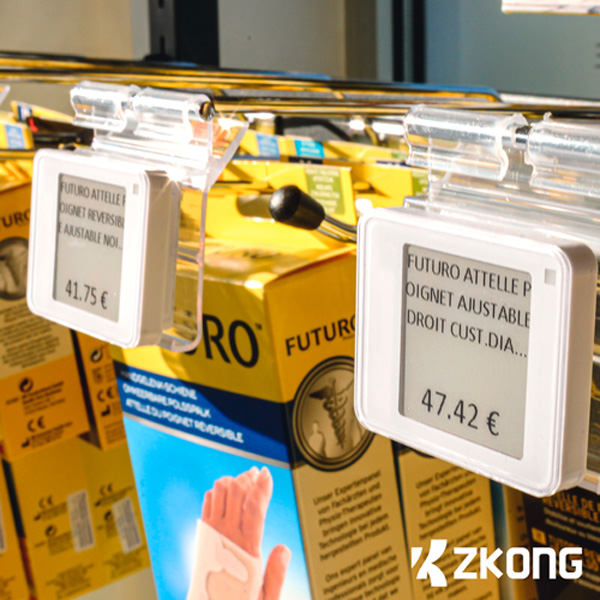Electronic labels, as intelligent information display products utilizing IoT technology, are not only widely used in retail, supermarkets, and industrial warehousing but also increasingly adopted in the healthcare sector. With the expanding applications of ESL (Electronic Shelf Label) series products in medical scenarios, some mature implementations include:
Drug electronic labels
Electronic bedside cards
Clinic electronic door signs
Electronic wayfinding boards
While it may seem that electronic price labels in healthcare are merely used for efficient information management and display, they actually offer the following advantages:

In healthcare, the prices and details of medications and medical equipment often change due to market fluctuations, procurement costs, and different supplier pricing. Electronic price labels enable hospitals and pharmacies to update pricing and product information instantly without manual label replacement. This flexibility not only improves operational efficiency but also reduces the risk of incorrect purchases due to outdated information, ensuring patients receive accurate product details.
By integrating with hospital information management systems, electronic labels can display real-time alerts about drug expiration dates, storage conditions, and other critical safety information. This assists medical staff in making safer decisions during medication dispensing or equipment use, minimizing medical errors caused by information gaps and ultimately protecting patient health and safety.
Managing traditional paper labels requires significant manpower for frequent updates and maintenance. Electronic price labels, through automated management, drastically cut labor costs. This allows healthcare professionals to focus more on patient care and services, improving overall operational efficiency.
Accurate inventory tracking is vital in hospitals and pharmacies. Electronic price labels sync with inventory management systems to display real-time stock levels and sales data. This helps administrators monitor inventory trends, optimize stock structures, and minimize losses from expired drugs and medical supplies.
The healthcare industry faces environmental challenges, where traditional paper labels contribute to resource waste and excess trash. Adopting electronic labels reduces paper consumption, allowing medical institutions to balance efficiency with eco-friendly and sustainable practices.
In healthcare settings, digital shelf labels not only enhance the efficiency and accuracy of information management but also safeguard patient safety and improve the quality of medical services. As technology advances, electronic labels will play an increasingly pivotal role in the healthcare industry, becoming a key tool for elevating medical service standards.